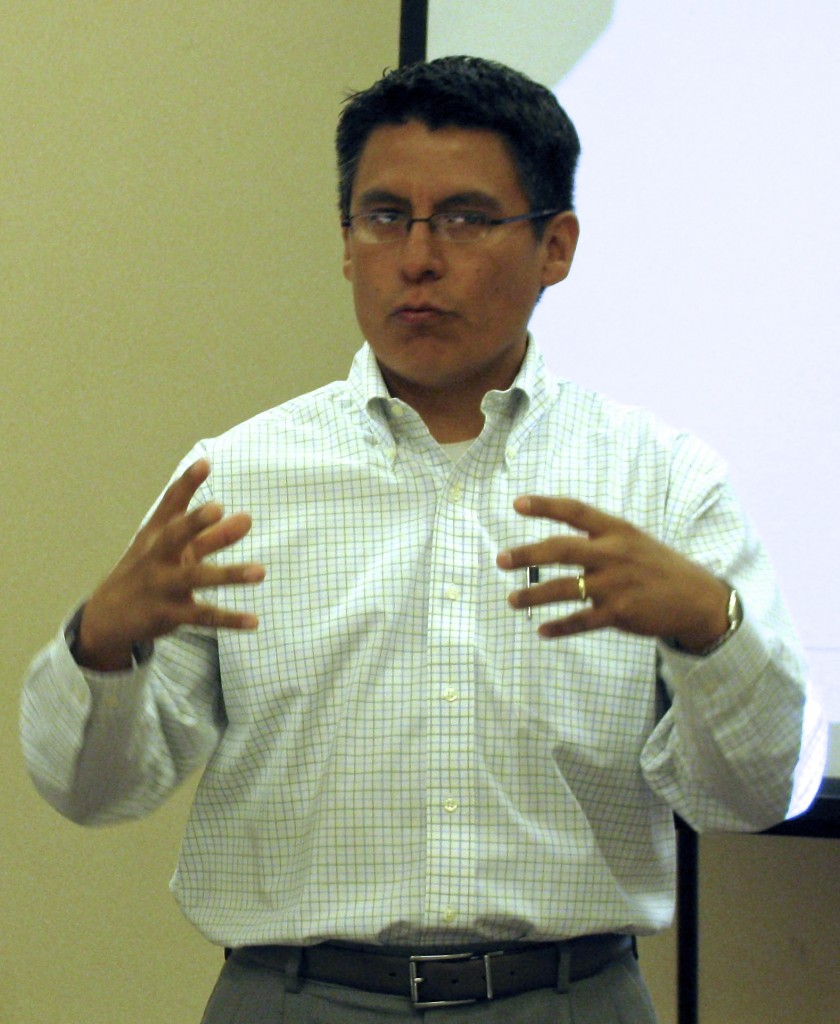 I do a lot of group facilitation, day long or multi-day sessions with people with big titles in the room trying to do the seemingly impossible (really!). After a string of such engagements I’ve been reflecting on a few confessions I’ve never shared. I hope to hear from other professional facilitators about your experience and why not, your own confessions. I also hope to help those just getting started in the field and practice of facilitation which is so enriching, professionally satisfying, and sorely needed in most organizations. So, just between us, here are a few of my confessions…
I do a lot of group facilitation, day long or multi-day sessions with people with big titles in the room trying to do the seemingly impossible (really!). After a string of such engagements I’ve been reflecting on a few confessions I’ve never shared. I hope to hear from other professional facilitators about your experience and why not, your own confessions. I also hope to help those just getting started in the field and practice of facilitation which is so enriching, professionally satisfying, and sorely needed in most organizations. So, just between us, here are a few of my confessions…
The hardest thing to pin down is the real purpose of the meeting. The rest is easy!
Believe it or not, clients usually know what they want, but articulating it in specific, measurable terms is very hard. Once we can agree on a clear purpose and can articulate the specific deliverables the rest is a piece of cake.
I am a stickler about planning but when it comes right down to it, I improvise a lot!
There is always a method to my madness, but there is plenty of madness! But improvisation comes naturally and safely because I over-prepare to the point that I know exactly where and how I can flex and still accomplish the goals of the meeting and produce the deliverables my client expects. Of course, much of it comes from many years of experience, but there is definitely a paradox in the planning.
I think a lot about the questions I’m going to ask
Most people think facilitation is easy (and the word itself literally means “to make easy”) but what most don’t realize is that a hidden secret of most professional facilitator is asking great questions and that those are not easy to come up with. I usually write my questions (often multiple versions of them) during my planning and keep thinking about them carefully before and during the session. When the moment is right, I ask the question and voilà! Awesome things can happen with the right question at the right time. But they take practice and lots of preparation.
Much of the time I’m not 100% sure what the group is talking about
OK, so my clients may find this a bit disturbing, but actually, that’s what allows me to manage group process. If I don’t get deep into the content of the discussion, it’s easier for me to remain neutral and objective. It also allows me to ask good questions. Some of the best questions are the most basic: Why? How so? Can you provide an example of what you just said? What does that mean? and so on. So I’m very comfortable not being steeped into the subject matter because it makes me a better facilitator.
I hear with my eyes
Because I don’t have a stake in the outcome of the meeting, I have the luxury of watching and see what others don’t. Things I pay attention to include: how you say what you say, who is talking the most vs. the least, the inflections in your voice, how people react to each other, your facial expressions, gestures, and posture, who is sitting where, etc. I even observe how people spend their breaks. OK, so I won’t follow you to the restroom but it’s interesting to watch who runs out quickly, who sticks around to converse about different things, who comes back on time vs. late, etc. Everything tells me something and this allows me to adjust and intervene if necessary.
Sometimes I question my sanity right in the middle of the meeting
Yes, sometimes I think why do I do this to myself?!?! I mean, I love a good challenge: conflict, hidden agendas, adversarial relationships, etc. I cherish the opportunity to help a client tackle a seemingly impossible challenge. But sometimes, in the middle of facilitating those difficult dialogues, it gets so tough that I question my own sanity. At that moment I call a break, go get some water, breathe deeply, collect myself, and then come back for more. It always works out and I feel a great sense of satisfaction afterwards but in the moment it feels painful. I think I need help!
When I ask you to elaborate on something you just said, I am buying myself time to write it down
I can write fast but the last thing I want is for people to sit there watching me write whatever you just said (because I always write exactly what you say, not what I think you said…that’s one of my grand rules). So I will often say “say more about that” or “can you give an example?” or “and why is that?” People think it’s my superb asking-great-questions-technique at work but mostly what I really want is time to finish writing what you jus said! Obviously there are benefits to asking follow up questions and I don’t ignore the elaboration, and it always adds clarity and color. But mostly I just need time to finish writing what you said!
So, there they are! How about you? What are some of your confessions?

One Comment on “Confessions of a Professional Facilitator”
Comments are closed.